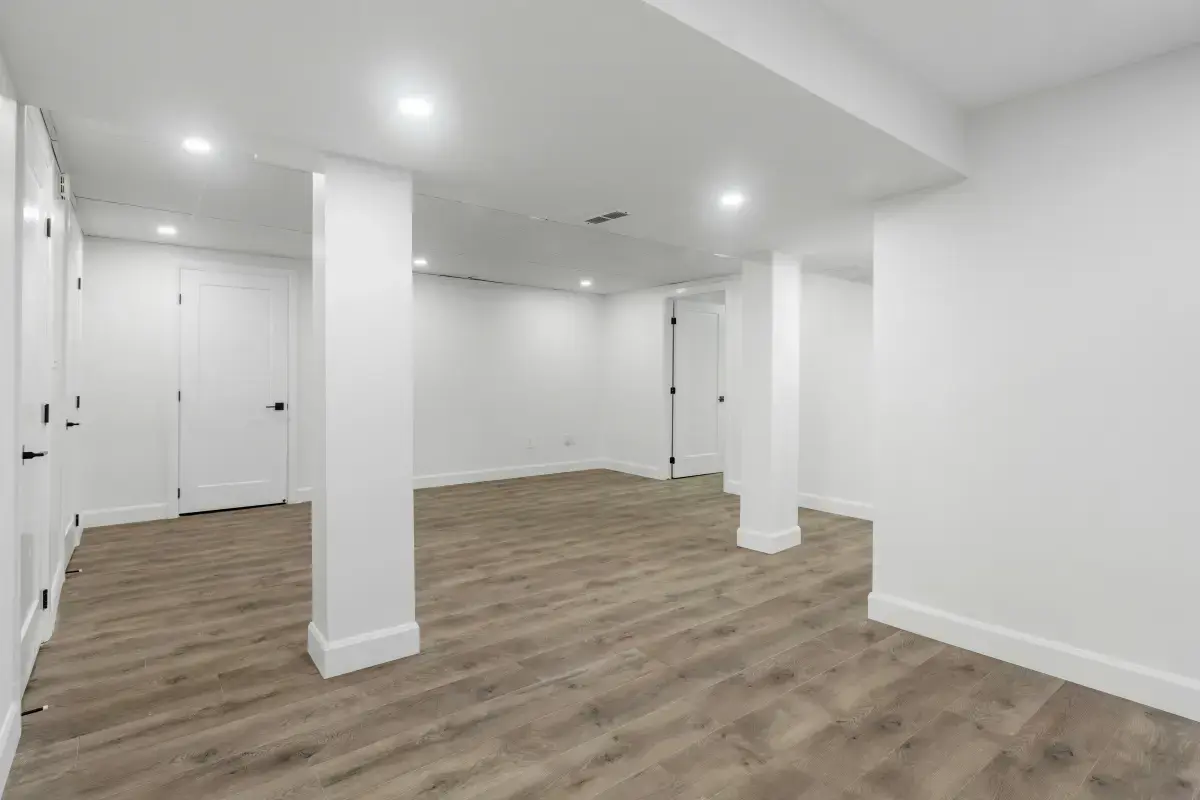
Legal Basement as a Revenue Source in Toronto
In a city as dynamic and diverse as Toronto, homeowners are constantly looking for ways to maximize the value of their properties. One increasingly popular strategy is creating a legal basement apartment to generate rental income. With Toronto’s growing population and high demand for affordable housing, a legal basement can be a lucrative and smart investment.
This blog explores everything you need to know about turning your basement into a revenue-generating unit while staying compliant with Toronto’s regulations.
1. What is a Legal Basement Apartment?
A legal basement apartment, often referred to as a secondary suite, is a self-contained living unit within a house that meets the building and zoning codes required by the City of Toronto. It typically includes:
- A separate entrance
- A kitchen
- A bathroom
- Sleeping and living spaces
Creating a legal basement ensures the unit is safe for tenants and avoids fines or legal complications for the homeowner.
2. Benefits of a Legal Basement Apartment
Having a legal basement apartment offers multiple advantages:
-
Additional Income: Renting out your basement can generate steady monthly income to offset your mortgage or other expenses.
-
Increased Property Value: A property with a legal secondary suite is often more attractive to buyers and can fetch a higher resale price.
-
Flexible Living Arrangements: Use the space for extended family members, guests, or as a home office if not renting it out.
-
Meeting Housing Demand: Contribute to Toronto’s rental housing market, which faces a persistent shortage.
3. Steps to Create a Legal Basement Apartment
Creating a legal basement requires careful planning and adherence to city regulations. Follow these steps to ensure success:
Step 1: Check Zoning and Bylaws
Toronto allows secondary suites in most residential zones, but it’s essential to confirm that your property complies with zoning requirements. Some key considerations include:
- Lot size
- Parking availability
- Property type (e.g., detached or semi-detached homes)
Step 2: Apply for Permits
Before starting renovations, you must obtain permits from the City of Toronto. This typically includes:
- Building Permits for structural changes
- Electrical Permits for wiring upgrades
- Plumbing Permits for new bathrooms or kitchens
Skipping permits can result in fines and force you to redo work.
Step 3: Renovate According to Building Code
The basement must meet Ontario Building Code requirements for:
- Ceiling Height: Minimum of 1.95 meters for most areas.
- Egress Windows: Large enough to allow escape in emergencies.
- Fire Safety: Smoke alarms, carbon monoxide detectors, and fire-rated materials must be installed.
- Ventilation and Lighting: Adequate natural light and proper ventilation are essential.
Step 4: Obtain Final Approval
After completing renovations, city inspectors will verify that your basement meets all requirements. Once approved, it becomes a legal rental unit.
4. Costs of Creating a Legal Basement Apartment
The cost of converting your basement into a legal apartment in Toronto varies depending on the condition of the space and the scope of the project. Typical costs include:
- Permits: $2,000–$5,000
- Renovations: $50,000–$100,000 (depending on size and complexity)
- Upgrades: Electrical, plumbing, and insulation may require additional investment.
While the initial costs can be significant, the potential rental income—often $1,500–$2,500 per month—makes it a worthwhile investment in the long run.
5. Tips for Maximizing Revenue
To ensure your legal basement attracts quality tenants and maximizes income, follow these tips:
-
Design for Comfort: Invest in good lighting, soundproofing, and modern finishes to make the space more appealing.
-
Set Competitive Rent: Research similar rentals in your neighborhood to set a fair and competitive price.
-
Market Effectively: Use online platforms like Kijiji, Craigslist, or local Facebook groups to reach potential tenants.
-
Screen Tenants Carefully: Conduct background checks, verify references, and use a detailed rental agreement to minimize risks.
6. Stay Compliant with Landlord Regulations
As a landlord in Toronto, you’ll need to adhere to Ontario’s Residential Tenancies Act (RTA) and other rental regulations. Key responsibilities include:
- Providing Safe Living Conditions: Ensure the unit is well-maintained and all appliances are functional.
- Handling Rent Increases: Follow the province’s rent increase guidelines, typically capped at a certain percentage each year.
- Addressing Tenant Concerns: Respond promptly to maintenance requests or disputes.
Failure to comply with these responsibilities can lead to legal disputes or fines.
7. Tax Implications
Rental income from a basement apartment is taxable. Keep detailed records of:
- Rent payments
- Renovation costs
- Utilities (if included in rent)
Consult with a tax professional to understand eligible deductions and ensure compliance with Canada Revenue Agency (CRA) rules.
8. Challenges to Consider
While creating a legal basement apartment can be rewarding, it comes with potential challenges:
- Upfront Costs: Renovation and permitting expenses can be high.
- Regulatory Complexity: Navigating Toronto’s bylaws and building codes can be time-consuming.
- Tenant Management: Dealing with late payments, complaints, or vacancies requires effort.
Conclusion
A legal basement apartment is a fantastic way for Toronto homeowners to generate revenue while adding value to their properties. By following city regulations, investing in quality renovations, and marketing effectively, you can create a safe and attractive rental unit that meets Toronto’s housing needs.
If you’re considering this opportunity, work with experienced contractors and consultants to ensure your project is a success. With the right approach, your basement can transform from unused space into a profitable asset in 2025 and beyond.